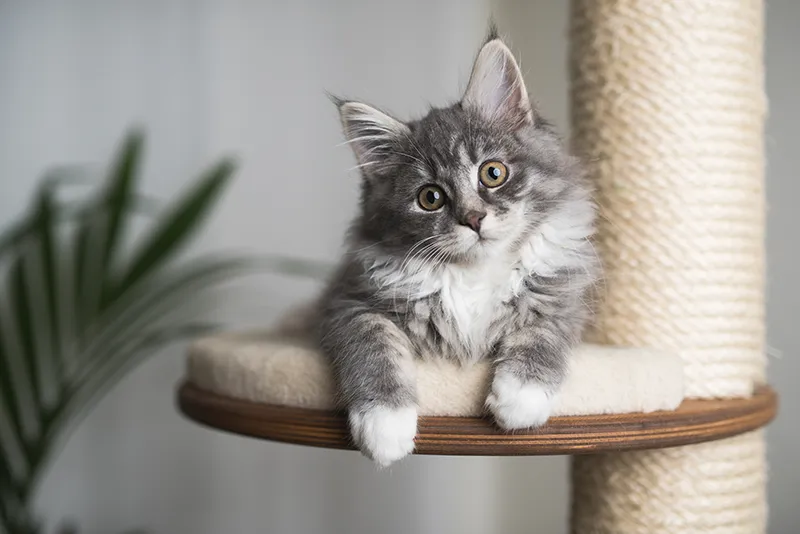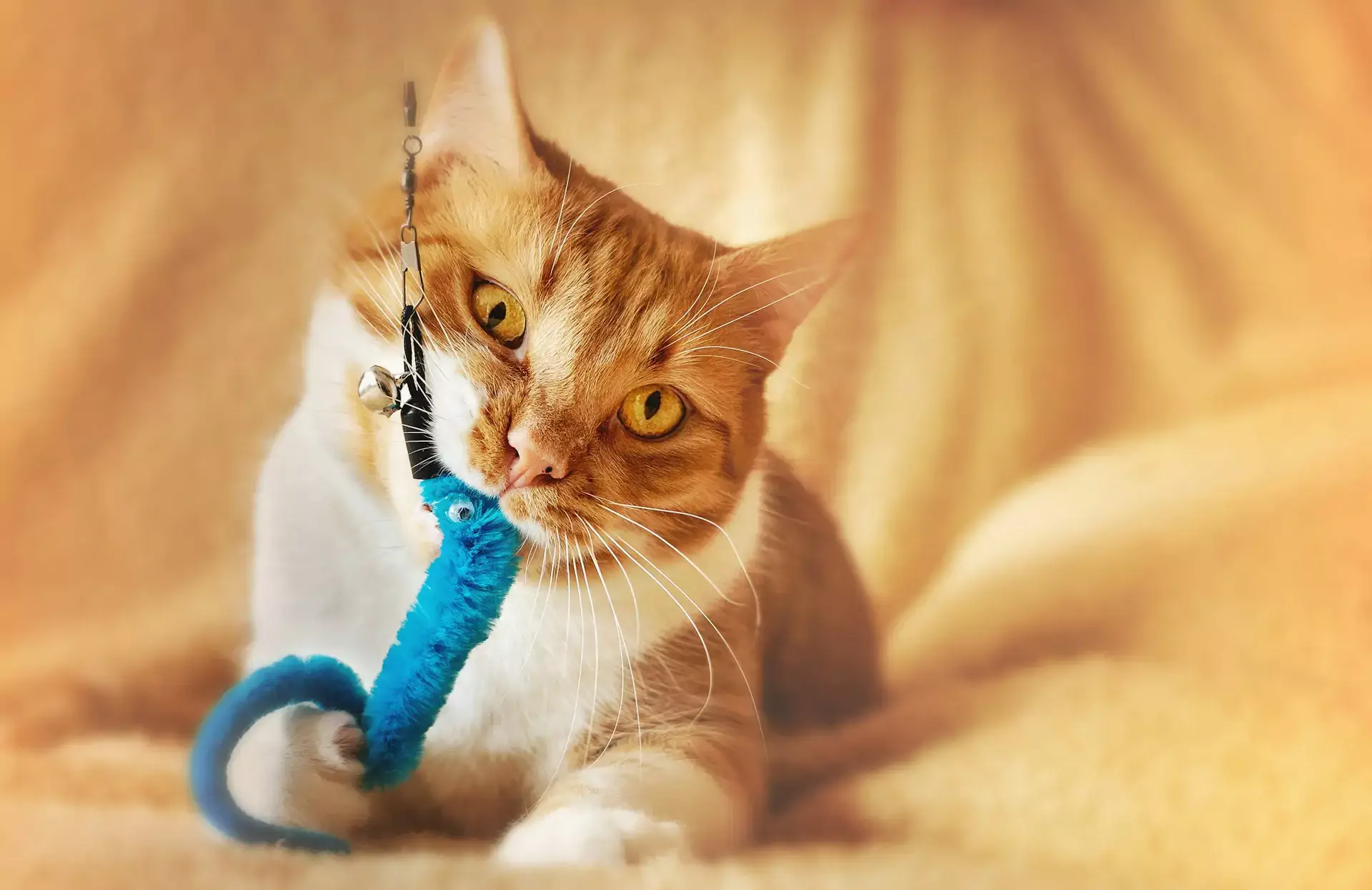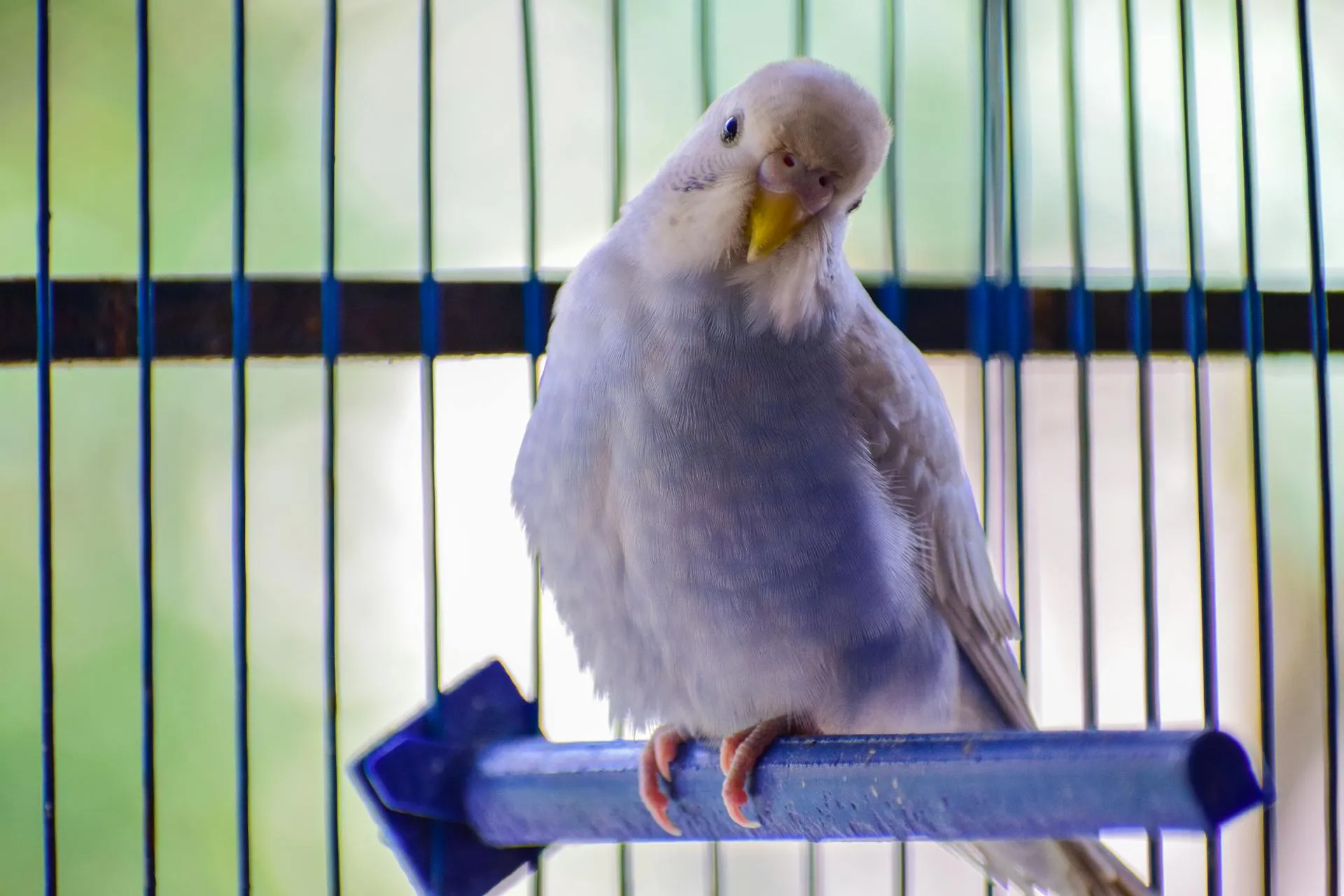As pet owners, it can be heartbreaking to see our furry friends stressed or anxious. While it’s easy to spot stress in humans, it’s often not as clear when it comes to our feline companions. At Galena Animal Medical Clinic, your Galena, MD, animal hospital, we know that understanding and addressing stress in cats is essential for maintaining their health and happiness. In this blog, we’ll cover how to recognize signs of stress in cats, the potential causes, and practical tips on how to help your cat relax and feel more at ease.
What Causes Stress in Cats?
Cats are sensitive creatures, and their stress can be triggered by a variety of factors, both environmental and behavioral. Kitties are naturally territorial, and they often dislike changes to their environment or routine. Additionally, some cats are more prone to stress due to genetic factors or past experiences.
Here are some common causes of stress in cats:
- Environmental changes: Moving to a new home, rearranging furniture, or introducing new pets can all cause stress in cats.
- Loud noises: Cats have sensitive hearing, and loud noises like thunderstorms, fireworks, or construction can create anxiety.
- Separation anxiety: Cats form strong bonds with their owners, and long periods of separation or changes in their owner’s schedule can cause stress.
- Health issues: Pain or illness can lead to stress, so it’s important to rule out any medical causes if your cat is showing signs of anxiety.
- Changes in routine: Cats are creatures of habit, so disruptions to their regular feeding or playtime schedule can be unsettling.
Chewy did an article on why cats scratch, which you can read here. Humane World for animals also has a post on scratching in kitties. Click here for that one.
Signs of Stress in Cats
It’s important to recognize the signs of stress in your cat so you can intervene before the situation worsens. While cats may show stress in different ways, here are some common indicators that your cat might be feeling anxious or overwhelmed:
1. Changes in Eating or Drinking Habits
One of the first signs of stress in cats is a change in their appetite. A stressed cat may eat less or lose interest in their food altogether. Some cats may overeat when stressed. Similarly, changes in water intake—drinking more or less than usual—can also indicate stress.
2. Excessive Grooming or Lack of Grooming
Cats are known for grooming themselves, but when stressed, they may groom excessively, leading to bald patches or skin irritation. On the other hand, some cats may stop grooming altogether, which can result in a greasy or matted coat.
3. Litter Box Problems
Stressful situations can lead to accidents outside the litter box. If your cat suddenly starts urinating or defecating outside the litter box, stress could be the culprit. Cats may also begin to avoid the litter box entirely, which is a clear sign of distress.
4. Aggression or Hiding
Cats under stress may act out by becoming aggressive toward other pets or people in the household. If your cat suddenly becomes defensive, hissing, scratching, or biting, this could be a response to stress. Alternatively, some cats may retreat to quiet spaces, hiding and avoiding contact with anyone.
5. Behavioral Changes
Other behavioral changes include restlessness, excessive meowing or vocalizing, and destruction of furniture or household items. If your cat is more hyperactive than usual or is suddenly acting out of character, it could be a sign of stress.
6. Physical Symptoms
Stress can also manifest in physical symptoms, such as diarrhea, vomiting, or a weakened immune system. Cats with chronic stress are more prone to respiratory issues, skin problems, and other health concerns.
How to Relieve Stress in Cats
Once you recognize that your cat is stressed, the next step is finding ways to help them relax and feel comfortable again. Here are some effective methods to relieve stress and anxiety in cats:
1. Create a Safe and Quiet Space
If your cat is feeling stressed due to noise or changes in the environment, provide a designated “safe space” where they can retreat and relax. This space should be quiet, comfortable, and away from any household chaos. You can include a cozy bed, hiding spots, and even soft music to calm their nerves.
2. Maintain a Consistent Routine
Cats thrive on routine, so try to keep their feeding, play, and sleeping schedules consistent. Predictability helps to reduce anxiety and creates a sense of stability for your cat. If you are planning a change in routine, do it gradually to minimize the stress.
3. Use Feline Calming Products
There are a variety of calming products designed specifically for cats. These include:
- Feliway diffusers: These plug-in devices release pheromones that mimic the ones cats produce to mark their territory, which can help reduce stress.
- Calming collars: These collars release calming pheromones and can be worn by your cat throughout the day.
- Calming sprays: These sprays can be used in areas where your cat spends a lot of time, helping to create a more peaceful environment.
These products can help ease your cat’s anxiety and provide relief during stressful situations.
4. Interactive Play and Enrichment
Mental and physical stimulation can help reduce stress in cats. Regular interactive playtime is essential to help your cat burn off excess energy and engage in positive behavior. Use toys like feather wands or laser pointers to encourage your cat to chase and jump.
Enrichment activities such as puzzle feeders, scratching posts, and climbing structures can keep your cat entertained and mentally engaged, reducing the likelihood of stress-induced behaviors. Click here to check another kitty behavior blog post.
5. Provide Proper Veterinary Care
Stress in cats can sometimes be linked to underlying health issues, so it’s important to consult with your veterinarian if your cat’s behavior changes suddenly or if signs of stress persist. Your vet can help rule out medical conditions and offer additional advice or treatments to manage anxiety.
If your cat is showing signs of chronic stress, your vet may recommend medication to help calm your cat’s nerves. Medications for stress or anxiety are generally safe and can help your cat manage extreme anxiety.
6. Consider Adopting a Companion
For some cats, loneliness or boredom is a source of stress. If your cat is isolated and you think they might benefit from a companion, talk to your vet about the possibility of adopting another cat. However, always introduce new pets gradually and monitor their interactions to ensure they get along.
Frequently Asked Questions
1. How do I know if my cat is stressed or sick?
Stress-related behaviors, such as hiding, excessive grooming, or aggression, are usually temporary and occur in response to specific triggers. If your cat’s symptoms persist or worsen, it may be time to visit your vet to rule out illness.
2. Can stress cause health problems in cats?
Yes, chronic stress can contribute to health issues such as digestive problems, skin conditions, and a weakened immune system. It can also lead to behavioral issues like litter box problems or aggression.
3. What are the best calming products for cats?
Feliway diffusers, calming collars, and sprays are commonly used products that can help relieve stress in cats. Consult your vet for personalized recommendations.
4. How can I prevent stress in my cat?
Preventing stress in cats involves creating a predictable routine, providing a safe environment, offering mental and physical stimulation, and minimizing environmental changes that could cause anxiety.
5. When should I consult a veterinarian about my cat’s stress?
If your cat’s stress symptoms are severe, prolonged, or causing health issues, it’s time to consult your veterinarian. Your vet can provide further guidance and treatment options.
Make An Appointment At Our Galena, MD Vet Clinic
At Galena Animal Medical Clinic, your Galena, MD, animal hospital, we understand how important it is to keep your cat happy and healthy. By following these tips and recognizing signs of stress early, you can help your feline friend feel safe, secure, and relaxed in their environment.
If you suspect your cat is stressed or experiencing anxiety, schedule an appointment with us today to discuss further treatment options. We’re here to help you care for your pet’s emotional well-being.
Click here to visit our Service page and find out more about our clinic and the animals we treat. You can also go here to learn more about our Critical Care services, or go here to learn more about our Exotic Pet care offerings.
This blog is meant to be informational only. Always consult with your veterinarian for the right medical advice, diagnosis, or treatment plan for your pet and follow their advice.







!Social Media Icons